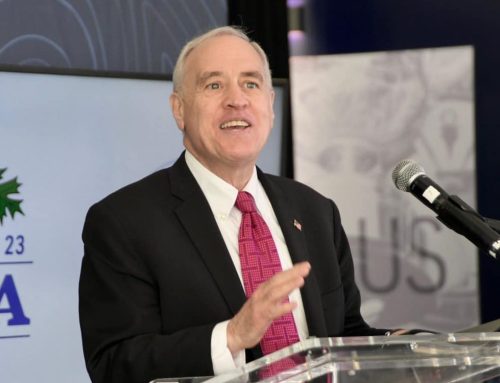Child Poverty Reduction Advisory Council members question impact of Hochul’s budget
The budget proposed by Gov. Kathy Hochul would likely have a limited ability to lift New York children out of poverty, according to an analysis of the executive budget produced by six members of the state’s Child Poverty Reduction Advisory Council.
The draft review – produced by a mix of legislative and gubernatorial appointees to the council – found that a handful of proposals “have the capacity to aid all New York children,” while other initiatives would have a “minimal impact for New Yorkers who are experiencing poverty.” Most notably, according to the six members, are the proposals absent from the governor’s budget that could curb child poverty, including additional tax credits, a more aggressive minimum wage boost and a state housing voucher program.
“A review of existing evidence suggests there are additional opportunities where policy/budget proposals could be strengthened to make a measurable impact on child poverty,” reads the draft report, which is available below.
The draft review is one of two dueling analyses produced from the council, which is supposed to create a roadmap toward cutting child poverty in half over the next decade and has a statutory obligation to produce a report on the governor’s proposed budget for fiscal year 2024. The more critical finding was produced in response to a draft review produced by the Hochul administration that reads like a press release for the governor’s budget.
“In its current form, we cannot endorse the draft statement because it fails to acknowledge that while there are provisions in the FY24 Executive Budget proposal that may contribute to reductions in statewide child poverty rates, there is an absence of policy instruments with the strongest evidence base and inclusion of other proposals with insufficient evidence to be associated with child poverty reduction,” reads the counter analysis produced by six council members.
During the March 7 meeting of the council, New York State Office of Temporary and Disability Assistance Commissioner Daniel Tietz, who serves as a co-chair of the council, acknowledged the first review “wasn’t particularly self-critical,” but noted that the analysis is not required to comment on what’s missing from the budget.
He proposed a new review of the governor’s budget that would consider whether proposals might have a direct or indirect impact on child poverty. This approach was positively received by members of the council, including the members who challenged the first review. Council members also floated the idea of having their review address the timeframe that proposals would produce benefits.
“Members of the council are continuing to work cooperatively to finalize a report to meet the statutory requirement,” an OTDA spokesman said on Thursday afternoon. The report is due on March 12, less than three weeks before a final budget is due.
“We haven’t kept to a single timeline in the statute, but we’re going to try to keep to this one.” said Tietz.
A more complete analysis of the child poverty landscape and policies to address the situation is being conducted by the Urban Institute, which is expected to produce its findings by this summer.










Social Media